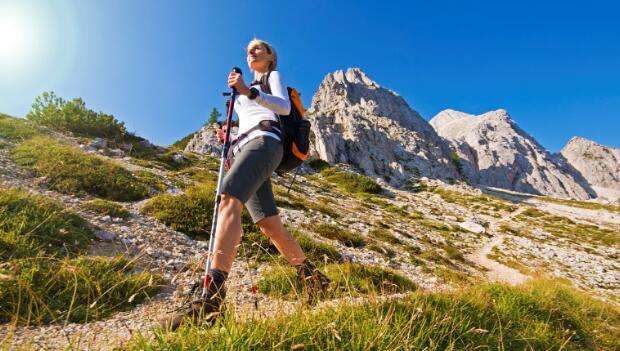
Next to fishing down at the lake and roasting marshmallows over a crackling fire, it's hard to imagine a more iconic camping activity than hiking: marching single file across a grassy clearing, wandering quietly in dappled shade among tall trees, and finally making it to the top of a challenging summit.
Outdoors Events Near You
The hike is often rewarding enough, but the benefits of hiking go far beyond good vistas. Did you know that it's good for your health, too? It's true, and in a surprisingly large number of ways.
More: 5 Reasons to Take a Hike
Categorized as an aerobic exercise, hiking can help improve:
- Cardiorespiratory fitness including heart, lungs and blood vessels
- Muscle strength
- Bone density (or slow its loss)
- Sleep quality
- Weight control. On average hiking burns up about 250 calories an hour—and people who lose weight through hiking or walking generally maintain that loss and continue to lose, while those who depend on diets tend to gain weight back.
Tramping through the forest can also help reduce your risk for:
- Heart disease and stroke
- High blood pressure or Type 2 diabetes
- High cholesterol and triglycerides
- Colon, breast, lung and endometrial cancers
- Depression (if so afflicted)
- Early death (Studies have shown that someone who is active for seven hours a week has a 40 percent lower chance of dying early than someone active for less than 30 minutes a week.)
- Negative effects of osteoporosis and arthritis
- Tension and anxiety
More: Get Fit With Hiking
Hiking Can Help Your Kids, Too!
Your kids are more likely to be physically fit and have a lower risk of becoming obese, developing high blood pressure or Type 2 diabetes. They'll may also sleep better at night and be more alert in class. Plus, if they're fit, they may have a greater self-confidence and be less vulnerable to schoolyard bullying.
But, before you jump out of your folding camp recliner and start for the summit of Mt. Rainer, there are a few questions you should consider.


